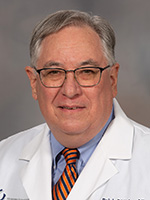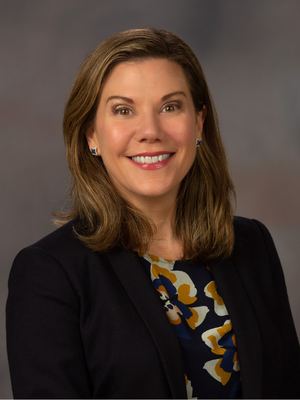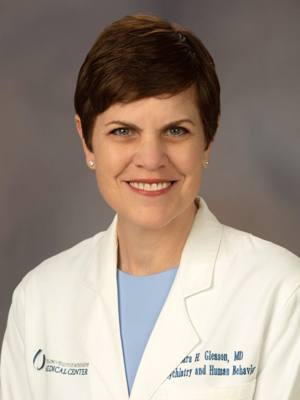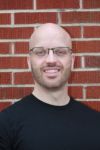- Research
- Centers and Institutes
- Centers
- Center for Bioethics and Medical Humanities
- About the Center for Bioethics and Medical Humanities
- People
People
- Center for Bioethics and Medical Humanities
- About the Center for Bioethics and Medical Humanities
- Education
- Research
- 55 Word Stories
CBMH Director, Faculty and Staff
Ralph Didlake, MD
 Dr. Didlake is Associate Vice Chancellor for Academic Affairs, professor of surgery, and director of the Center for Bioethics and Medical Humanities. A graduate of the University of Mississippi, he completed his medical training and a residency in surgery at UMMC, followed by a fellowship at the University of Texas Health Science Center in Organ Transplantation.
Dr. Didlake is Associate Vice Chancellor for Academic Affairs, professor of surgery, and director of the Center for Bioethics and Medical Humanities. A graduate of the University of Mississippi, he completed his medical training and a residency in surgery at UMMC, followed by a fellowship at the University of Texas Health Science Center in Organ Transplantation.
Over the course of a 23-year practice of transplant, vascular and general surgery, he developed a deep interest in the human context and ethics of modern medicine and surgical care and obtained a master's in bioethics and health Policy from Loyola University's Neiswanger Institute for Bioethics in Chicago.
Dr. Didlake's focus is on the integration of biomedical ethics and professionalism across Mississippi clinical, educational and research efforts. Under his leadership, the Center for Bioethics and Medical Humanities developed a Quality Enhancement Program on Professionalism for use with UMMC faculty, trainees, staff and students in all affiliated UMMC schools. In addition, fellowship opportunities through the Center for Bioethics and Medical Humanities are expanding for undergraduate and graduate students in Mississippi universities to help incorporate interdisciplinary as well as interprofessional advances in health care education and practice.
Caroline Compretta, PhD
 Compretta is an assistant professor with appointments in the Department of Preventive Medicine and the Department of Pediatrics. A graduate of Millsaps College, she received her master's and doctorate in cultural anthropology from the University of Kentucky, with a dissertation on the relationships between service providers and recipients in faith-based social service programming.
Compretta is an assistant professor with appointments in the Department of Preventive Medicine and the Department of Pediatrics. A graduate of Millsaps College, she received her master's and doctorate in cultural anthropology from the University of Kentucky, with a dissertation on the relationships between service providers and recipients in faith-based social service programming.
She has expertise in qualitative research design, methods and analysis, and experience conducting community-engaged research and programs. Her research focuses on the social and political contexts of health, health disparities, food insecurities, child-centered research and community-based programs.
Lida Gibson, MA
Gibson is the coordinator of the Asylum Hill Project. (Asylumhillproject.org) She holds a BA in English from Millsaps College and an MA in English from Tulane University. From 1991 until she joined UMMC in 2018, she had built a successful career as a filmmaker and multimedia producer, writer, and editor with clients ranging from small non-profits to multi-national corporations. Recent media projects included work with the Mississippi Civil Rights Museum, the Museum of Mississippi History, and Mississippi Public Broadcasting.
Her current work with the Asylum Hill Project includes historical research on the institution and its role in Mississippi’s history. She is currently producing a short documentary about the history of the Asylum with funding from a Mississippi Humanities Council grant.
Sara Gleason, MD
Dr. Sara Gleason is professor, interim chair of the Department of Psychiatry and Human Behavior, and assistant vice chancellor for clinical affairs. She is the psychiatric consultant to the Asylum Hill Research Consortium.
 A graduate of the UMMC School of Medicine, Gleason completed her psychiatry residency at UMMC in 2008. She was a staff psychiatrist at the Mississippi State Hospital and at VA facilities in Jackson and Biloxi before returning to UMMC as a faculty member in 2016. Gleason is director of consultation-liaison psychiatry and attending physician for the inpatient medical-psychiatry unit.
A graduate of the UMMC School of Medicine, Gleason completed her psychiatry residency at UMMC in 2008. She was a staff psychiatrist at the Mississippi State Hospital and at VA facilities in Jackson and Biloxi before returning to UMMC as a faculty member in 2016. Gleason is director of consultation-liaison psychiatry and attending physician for the inpatient medical-psychiatry unit.
Prior to entering the medical field, Gleason studied public policy as an undergraduate at Princeton University and earned a JD from the University of Michigan Law School. In 2019 she completed the executive MBA program at the Else School of Management at Millsaps College. An advocate of lifelong learning, Gleason is drawn to the multidisciplinary approach of the CBMH and the Asylum Hill Project. She is dedicated to honoring the legacy of Asylum Hill while developing the site to meet the healthcare needs of future generations.
Patrick Hopkins, PhD
 Hopkins is a professor with an appointment in the Department of Psychiatry and Human Behavior at UMMC and in the Department of Philosophy at Millsaps College. With a BA in psychology and philosophy from Ole Miss, he had positions at the Yerkes Primate Research Center in Atlanta and in the Anatomy and Neurobiology at the University of Tennessee Medical School, Memphis, before completing a doctorate in Philosophy at Washington University, St. Louis, followed by a postdoctoral research fellowship in applied ethics at Bowling Green State University, Ohio.
Hopkins is a professor with an appointment in the Department of Psychiatry and Human Behavior at UMMC and in the Department of Philosophy at Millsaps College. With a BA in psychology and philosophy from Ole Miss, he had positions at the Yerkes Primate Research Center in Atlanta and in the Anatomy and Neurobiology at the University of Tennessee Medical School, Memphis, before completing a doctorate in Philosophy at Washington University, St. Louis, followed by a postdoctoral research fellowship in applied ethics at Bowling Green State University, Ohio.
Specializing in ethics, moral psychology, and neuroscience, his research focuses on empirical moral psychology in medical settings, clinical moral pathology, the legal status of various neurologic and genetic technologies, and the history of natural law theory and the impact on its future of contemporary neuroscience and cognitive science.


